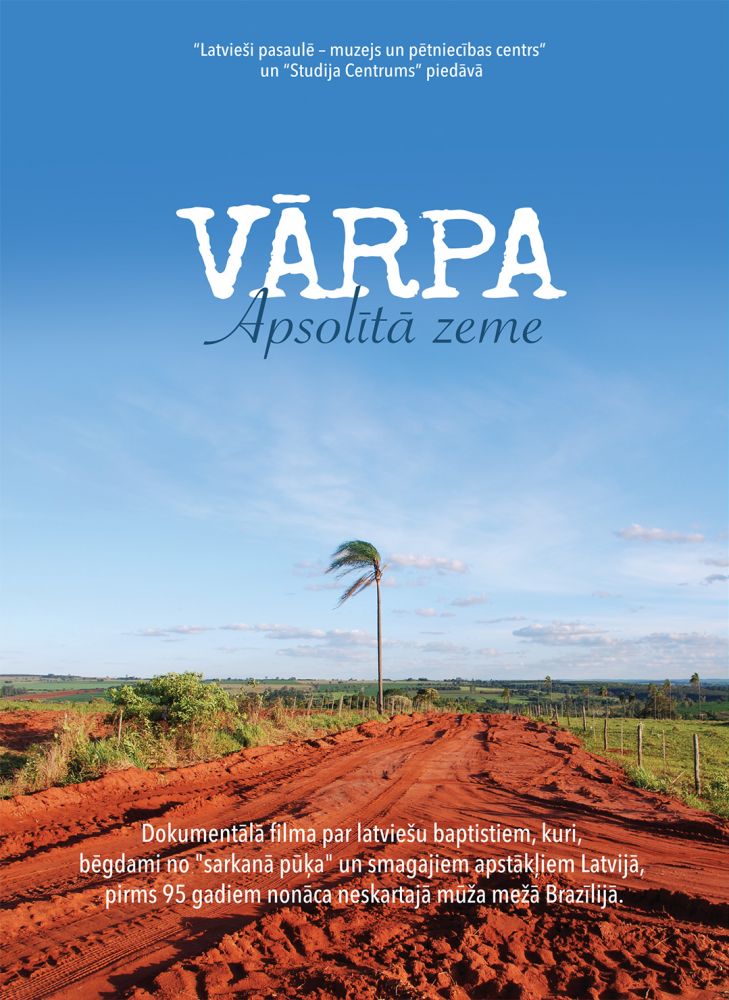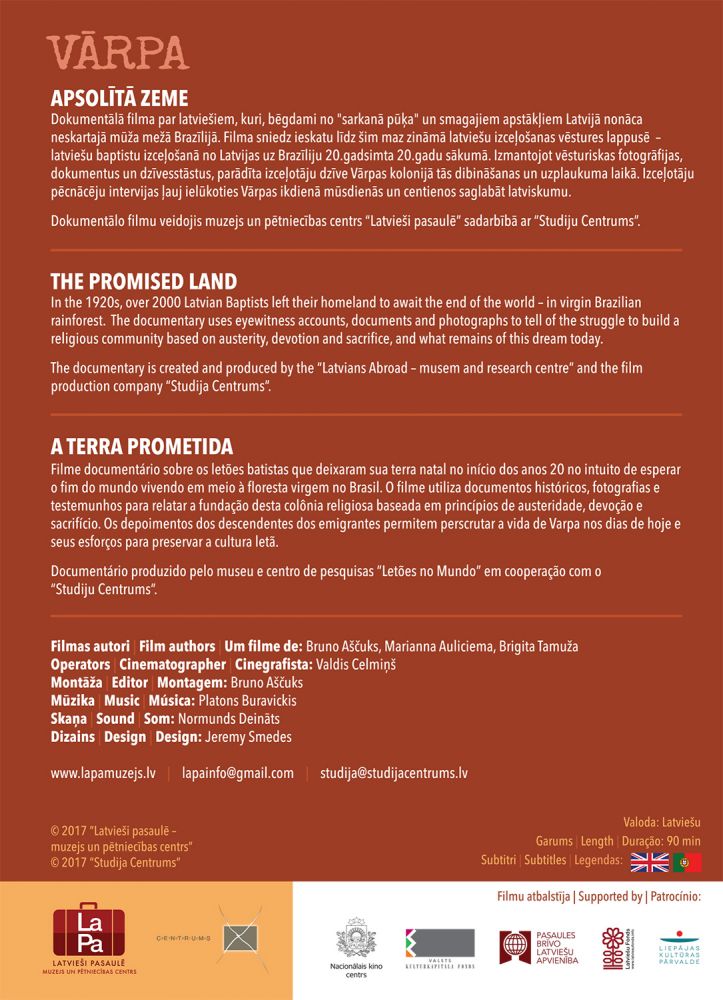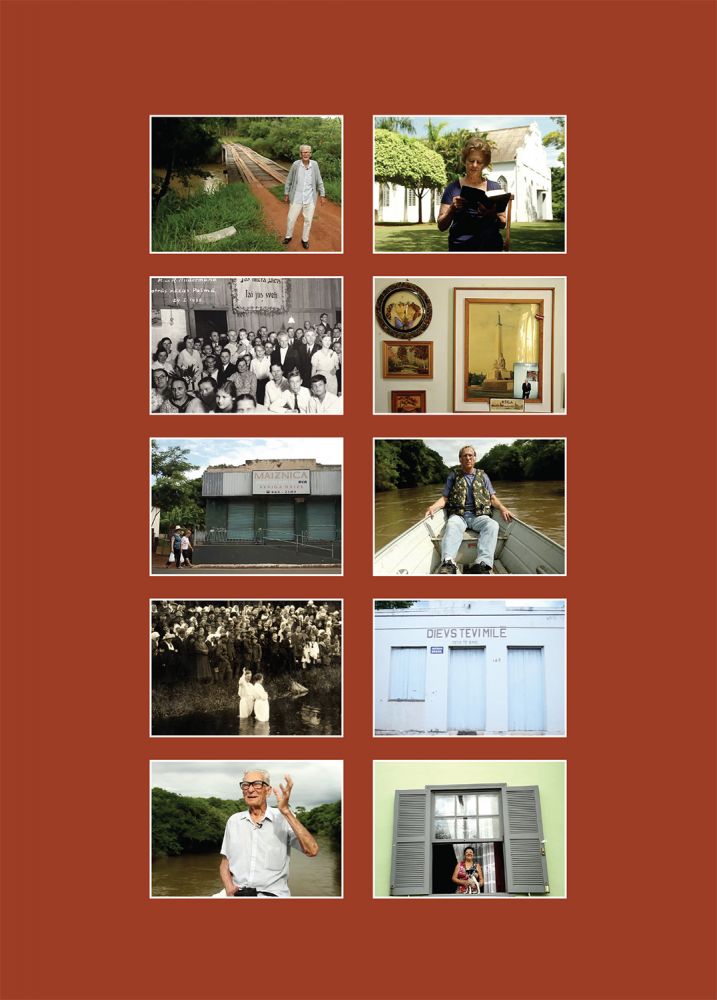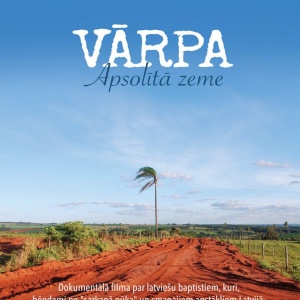Description
The full-length documentary VĀRPA. Apsolītā zeme (Vārpa. The Promised Land) provides insight into a little known chapter of Latvian emigration history – Latvian Baptist emigration from Latvia to Brazil in the early 1920’s. Historical photographs, documents and life stories, show us emigrant life in the Vārpa colony when it was founded and while it flourished, and interviews with the emigrant descendants allow us to see life in Vārpa today and their attempts to preserve something of their Latvianness. The documentary was produced by the Latvians Abroad Museum and Research Centre in collaboration with Centrums Film studio.
The film was created based on historian Brigita Tamuža’s many years of research about Latvian emigration to Brazil, including expeditions to Brazil in 1999 and 2001. Together with Museum staff member Marianna Auliciema, B. Tamuža went on several more expeditions (2009, 2011, and 2013), in order to collect objects, photographs and interviews for the Museum’s collection. Meeting people who had left their homeland as young children only a few years after Latvia gained its independence was an inspiration to present this singular emigration event in a film. The Museum asked cameraman Valdis Celmiņš to participate and he joined the last two expeditions to Brazil. At first the idea was to create short clips and excerpts of interviews for the Museum home page, but gradually the project evolved into the idea of making a full-length documentary, which would reach a much wider audience. From the very beginning, Bruno Aščuks was involved in the making of the film, helping to transpose historical materials into screen language. Music for the film was composed by Platons Buravickis.
Fleeing from the “Red Dragon” and harsh living conditions in Latvia after World War I, over 2000 Baptists, who called themselves “the awakeners”, travelled to Brazil. Prophets had proclaimed it to be the promised land, where they should go to await the end of the world and Christ’s second coming. They believed that from there, after being cleansed of worldly sins, the chosen nation would be snatched up to the heavens. When this did not come true, the most extreme of the emigrants set up a Christian commune with their spiritual leaders and ascetic and very religious lifestyle. They ended up living in unenviable circumstances in the dense virgin forests.
The emotional stories of those who witnessed the emigration first hand reveal just how complicated and difficult it was to settle in this foreign land. During the first years more than 200 people died, mostly children and the elderly.
Having existed in prolonged national and religious isolation, today Vārpa still exists as a small island of something Latvian in central Brazil. The film shows us that the few remaining older generation descendants of the immigrants still speak and sing in Latvian, bake rye bread, and have a coffin in the attic according to ancient custom, but the younger and middle-aged generation have already left Vārpa.
The film was supported by: National Film Centre of Latvia, State Culture Capital Foundation, Latvian Foundation Inc., World Federation of Free Latvians, Liepāja City Council Culture Department, Valdis Bērziņš.
More information: Brigita Tamuža, Latvians Abroad Museum and Research Centre; www.lapamuzejs.lv, ph. +371 29495357.




